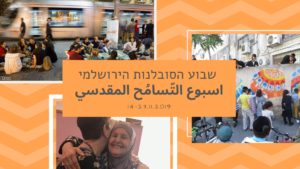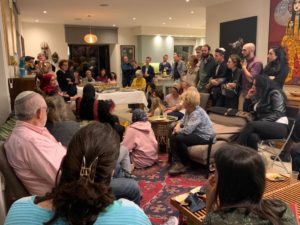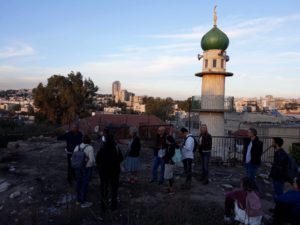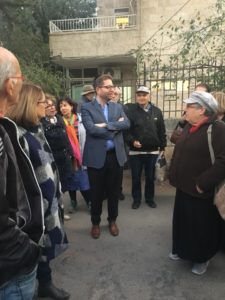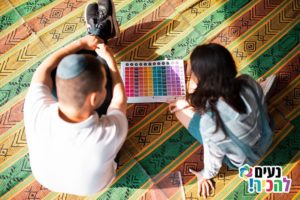Tolerance Week 2019 – Continuing a Tradition
There are some things you don’t learn in school – backgammon, capoeira, Debka glue dances and rap. – and certainly not with neighboring schools, [especially between Jewish and Arab schools]. This week we [Kulna] held a special event at the Natural History Museum, Tolerant Double Jerusalem, attended by 100 students, 10th graders from the Comprehensive High School in Beit Safafa and Keshet High School. We hope and believe that this activity will lead to more joint activities during the year between the two schools and other schools in east and west Jerusalem….The event took place as part of Jerusalem Tolerance Week 2019, proving yet again that Jerusalem is the world capital of tolerance.
This is how the Kulna organization summed up one of their events – their Jerusalem Double backgammon tournament – during the 4th annual Tolerance Week in Jerusalem. The week included 50 events in the week surrounding International Tolerance Day (November 16). Events took place between November 14 – 24. Click here for a full list of events. You can find the full list in three languages on the Jerusalem Tolerance Website.
This year, 50 events took place throughout Jerusalem as part of the Tolerance Week, and each one was attended by 20 to 40 people. The events were as diverse as Jerusalemites – tours, lectures, community bonfires, home hospitality that included Kosher Palestinian food, the first conference of Jerusalem’s Tolerance Coalition, and more.
Community centers also participated widely, and, with assistance from the Municipal Mediation Center, 12 events were held in different neighborhoods. In addition, there was a “What a Dish Tells” festival, in which restaurants throughout the city served a “tolerance dish”, and took part in raising awareness of the issue in the public discourse. This festival was even featured on the Jerusalem Municipality’s Facebook page:
A number of tours took residents to behind the scenes in the Arab neighborhood of Beit Safafa
And a tour about Haredi – non-Haredi relations in Rehavia and Sha’are Hesed:
Holding events in the public space, and recruiting restaurants and businesses in Jerusalem, helped us to reach audiences outside our ‘usual suspects’ and create more of a presence in the city.
Schools also took part in Tolerance Week. Below, for example, the Kulna organization organized a special event that included backgammon, capoeira, Debka dancing and rap for Jewish and Arab students from the Beit Safafa and Keshet high schools.
And in closing:
Want to see more pictures? Here’s the week’s photo album, from the Jerusalem Tolerance Facebook page:
And on the Jerusalem Tolerance Website you may find the Photo Gallery of the week!
Many thanks to the Jerusalem Foundation, the Natan Fund and the Schusterman Family Foundation for helping us to advance tolerance in Jerusalem.

